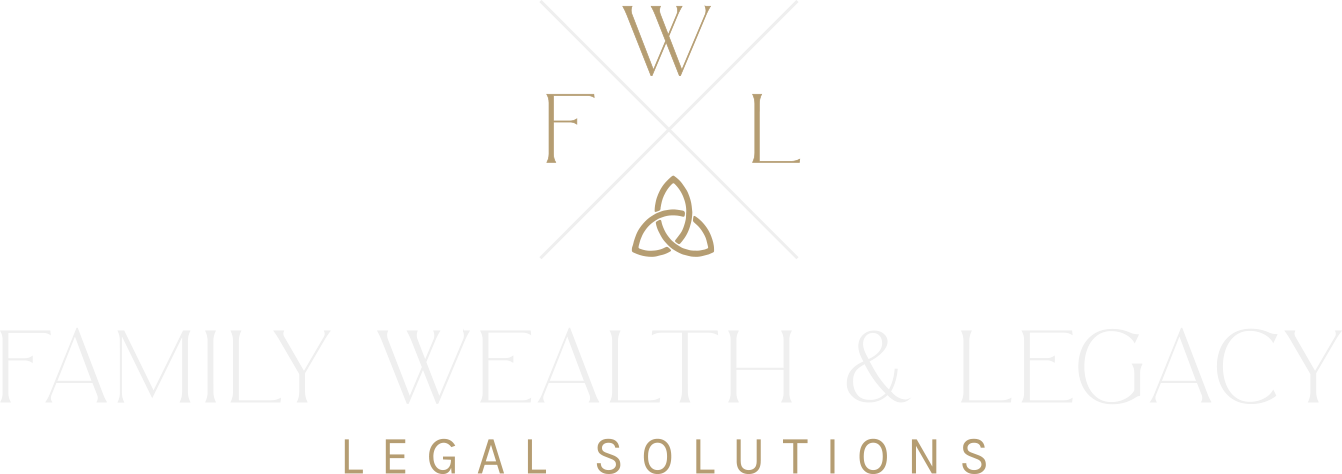The infamous 18th birthday, a major milestone in every kid’s life. It marks your child’s transition from childhood to adulthood, and with-it new responsibilities and rights. From a legal standpoint, this milestone marks a significant shift and major changes that every parent should be aware of.
In the eyes of the law, an individual is considered a legal adult at the age of 18. This magical day marks a right of passage, where your child gains the legal right to enter into contracts, vote, buy property, manage their own finances and make medical decisions for themselves. While this newfound independence is a crucial part of growing up, it can pose challenges for parents, especially when adult children need their parents’ help or need someone to make decisions on their behalf.
In this blog article, we’ll explore what happens legally when your child turns 18, what it means for your ability to make legal, financial and healthcare decisions on their behalf, and what tools you’ll need for a smooth transition to adulthood in Downers Grove.
How The Law Changes Your Role As A Parent
On the day your child turns 18, your ability to make legal, financial and healthcare decisions for them essentially disappears. To give you some perspective, let’s imagine an 18-year-old gets into an accident and is unconscious in the hospital. As a parent, you call the hospital and are shocked to hear that they can’t disclose medical information concerning their condition without the proper waivers. When you arrive at the hospital, they ask if you have paperwork or legal documents authorizing you to make healthcare decisions for them. Days later, you try to start making arrangements to take care of their rent, bills and finances for them and are told by your child’s bank that you can’t get access to their accounts or make any financial decisions on their behalf, without their consent or being named as a co-owner on the account. In the end, the hospital and your child’s bank and financial providers tell you that you need to hire an attorney and go to court to file for guardianship over your 18-year-old child, while they are in critical condition unconscious in a hospital bed.
This applies to a child, at any age, after their 18th birthday. This shift in authority from a single day on the calendar to the next, can be particularly challenging and a bit unsettling if your child is in a medical emergency, requires assistance in managing their affairs due to a disability or is still financially dependent on you. Thankfully, there are simple and inexpensive legal options and tools that can help parents and young adults in Downers Grove navigate these new challenges.
Protect Your Adult Child with Powers of Attorney
A Power of Attorney is a legal tool that allows your child to designate the person they choose to make legal or healthcare decisions on their behalf. There are two common types of Powers of Attorney that can be valuable in this situation: a General Durable Power of Attorney and a Healthcare Power of Attorney.
A General Durable Power of Attorney allows your child to appoint someone to manage their financial affairs in the event they become incapacitated, or if they just want help managing their finances. With this in place, you can continue to assist your child with financial matters, even after they turn 18.
The important thing to remember however, is that banks and financial institutions are wary of Powers of Attorney due to fraud running rampant these days. So, don’t be surprised if the first time a bank sees a Power of Attorney is when you walk it in to take over the management of your child’s account, and they tell you they won’t honor it and need a court order. That’s why it’s important for anyone with a Power of Attorney to give a copy to their bank after signing, and to fill out any of their internal forms and authorizations at that time. National banks and financial institutions, like Chase, Bank of America, US Bank, PNC, Wells Fargo, Citi, E-Trade, Vanguard, etc., operate across the country and don’t bother themselves with each state’s specific statutory forms and specific Powers of Attorney. They have their own rules, policies and procedures, so they will often have you fill out a few extra forms and authorizations when you begin discussing you or your child’s Illinois Power of Attorney. So, while every adult should have this legal tool, it’s important to check with your specific institution and that your children set up their accounts in the correct way to ensure you have immediate access to them if needed. Now, be careful because you don’t want any exposure to your kids’ liabilities, debts and creditors, but if god forbid they were hospitalized and unconscious for any period of time, you do want to ensure you can help them manage their accounts and avoid ever having to pay an attorney and go to court to assume guardianship.
A Power of Attorney for Healthcare grants someone the authority to make medical decisions on their behalf if they are unable to do so, such as medication and treatment options, nutritional needs, and life-support measures. This is crucial to ensure that your child receives the care they want, even if they cannot communicate their preferences. Also, that the people they would want to make decisions for them, have legal authority to do so.
Avoid Common Estate Planning Mistakes in Downers Grove
Only your child can put these measures in place, but encouraging them to create these legal documents through Downers Grove estate planning is a proactive step in maintaining your ability to assist them if the worst-case scenario became reality. By meeting with our attorney proactively to put your child’s estate plan in place once they turn 18, you can avoid these pitfalls and will be able to help them if an emergency occurs.
Over the years, we’ve heard many horror stories. From a kid in college, whose parents arrived at the hospital when their son was unconscious for days, only to find out that a short-term girlfriend they had never met, or even heard of, had been making all the decisions for their son for days and arguments ensued over decision-making. To a woman in her 20’s, who had a very strained relationship with her mother, and felt very strongly about the use of supplements, all-natural foods and took her diet very seriously. After a serious car accident that left her unconscious for weeks and required months of recovery, her close friends advised her medical providers of her wishes and what types of medications and nutrition she would have wished to receive. After her mother arrived and assumed authority over her care, all these decisions were reversed and her close friends (who she would have chosen to make these decisions for her), were no longer even allowed access to visit their very close friend during recovery. To this day, it is this woman’s position that had she received the supplements she wanted to be provided, she would have recovered much quicker and that her recovery would have left her with a drastically different mental and physical condition.
Stay Informed With a HIPAA Waiver
The Health Insurance Portability and Accountability Act (HIPAA) is a federal law that protects the privacy of individuals’ medical records. Once your child turns 18, their medical information is protected under HIPAA, and healthcare providers are prohibited from disclosing medical information to anyone without the patient’s explicit consent – parents and family members included.
To maintain access to your child’s medical information, they must complete a HIPAA privacy form or waiver for the state of Illinois. This document permits healthcare providers to share information and medical records with individuals specified in the waiver, such as parents or trusted family members.
Having a HIPAA waiver in place can be invaluable during medical emergencies when swift access to medical records, existing allergies and acceptable medications is critical and can be the difference between life-saving care. It can also be a valuable tool for young adults who may simply appreciate a parent’s ability to speak to their doctors when they aren’t feeling well or are overwhelmed with the demands of work, college, or both.
Support Your Adult Child’s Journey Into Adulthood Through Open Communication
Transitioning to adulthood is a right of passage and a significant step for both parents and children. While legal documents, such as Powers of Attorney and a HIPAA Waiver are essential, it’s equally important to have open and honest conversations with your child about their wishes and the responsibilities that come with being an adult. Read more in our article, Vacation Ready: The Legal Essentials for a Worry-Free Getaway
Discuss their healthcare preferences, finances and their expectations from you as a parent. Encourage them to consider creating these legal documents, not only for your peace of mind but also for their own protection. Not to mention, by opening up these discussions you can begin planting a seed for them to learn the importance of making wise financial decisions from a young age. By facilitating meetings with a Downers Grove estate planning attorney, a financial adviser, tax advisers and life insurance providers at a young age – kids can hear from someone other than their parent – and begin educating themselves on how to take advantage of their youth and build a wise foundation for their financial future.
When I was a young man, my father mentioned in passing that I should consider getting life insurance, setting aside for retirement and saving, but what 18-year-old listens to their parents. In hindsight, I could have saved myself a lot of time, money and lost opportunity if I had only listened and taken the time to understand the importance of my dad’s advice way back then.
If you have a teen who is approaching adulthood or are curious about how to implement this advice for a kid in their 20’s or 30’s, feel free to reach out and ask us how we can help to ensure your child has the legal support and protection they need no matter what adulthood brings.
If you aren’t sure how to talk with your child about these legal tools, we’re happy to help begin that conversation and make you look good for helping ensure that they have their ducks in a row. This, in our opinion, is how you can begin to create generational wealth for your family and help your children build a solid foundation for their future financial success.
Schedule a complimentary call today to get started, and when you do ask about our special offer for your young adults, when you schedule your own Family, Wealth & Legacy Strategy Session with us.
P.S. If you enjoyed reading this article and made it to the end, please leave a comment and let us know your thoughts and your biggest takeaway. If you think your family and friends could benefit, please share it on social media to spread the word.
This article is a service of Family Wealth & Legacy Legal Solutions (FWLLS). At FWLLS, we do not just draft documents; we ensure you make educated, informed and empowered decisions for yourself and the people you love. That’s why we offer a Family Wealth & Legacy Strategy Session™, during which you will get educated and begin to prepare to avoid life’s most common legal problems and get a plan in place to make the best possible choices for the people you love. You can begin by calling our office today to schedule a Family Wealth & Legacy Strategy Session and mention this article to find out how to get this $750 session at a significantly discounted rate, or even for free.


